In speech therapy, ensuring that activities are FUNctional for the patient is critical. What did the patient do pre-injury? What did they like? Odds are, your patient still likes those things and would love to get back to that hobby or interest——even if only on a modified level.
Whether it’s gardening, sewing, sports, music, or movies, incorporating a patient’s personal interests or hobbies into therapy activities can make a world of difference to that patient AND to their progress in speech therapy. You can still target attention, memory, listening comprehension, expressive language, inferencing, etc. using stimuli such as podcasts, sports clips, gardening books, fashion magazines, etc.
Let’s take a look at some of the specific reasons why incorporating patient hobbies and interests into speech therapy activities is so important:
· Promotes patient motivation
· Encourages patient engagement
· Increases likelihood of home program participation
· Allows opportunities for use of modifications, strategies, and tools in real life contexts
· Promotes carryover (transference of skills)
· Increases likelihood of progress and maintenance
What are some other benefits of incorporating patient hobbies/interests into speech therapy activities? Let me know in the comments and as always, have some amazing, FUNctional therapy sessions!
-Dana (The Neuro SLP)
Relevant Resources:
Brett, C. E., Sykes, C., & Pires-Yfantouda, R. (2015). Interventions to increase engagement with rehabilitation in adults with acquired brain injury: A systematic review. Neuropsychological Rehabilitation, 27(6), 959–982.
Kenah, K., Bernhardt, J., Cumming, T., Spratt, N., Luker, J., & Janssen, H. (2017). Boredom in patients with acquired brain injuries during inpatient rehabilitation: a scoping review. Disability and Rehabilitation, 40(22), 2713–2722.
Kusec, A., Velikonja, D., DeMatteo, C., & Harris, J. E. (2018). Motivation in rehabilitation and acquired brain injury: can theory help us understand it? Disability and Rehabilitation, 41(19), 2343–2349.
Trevorrow S, Gustafsson L, Hodson T. Leisure Engagement Among People Living With Acquired Brain Injury: A Scoping Review. OTJR. 2024;44(2):263-277.


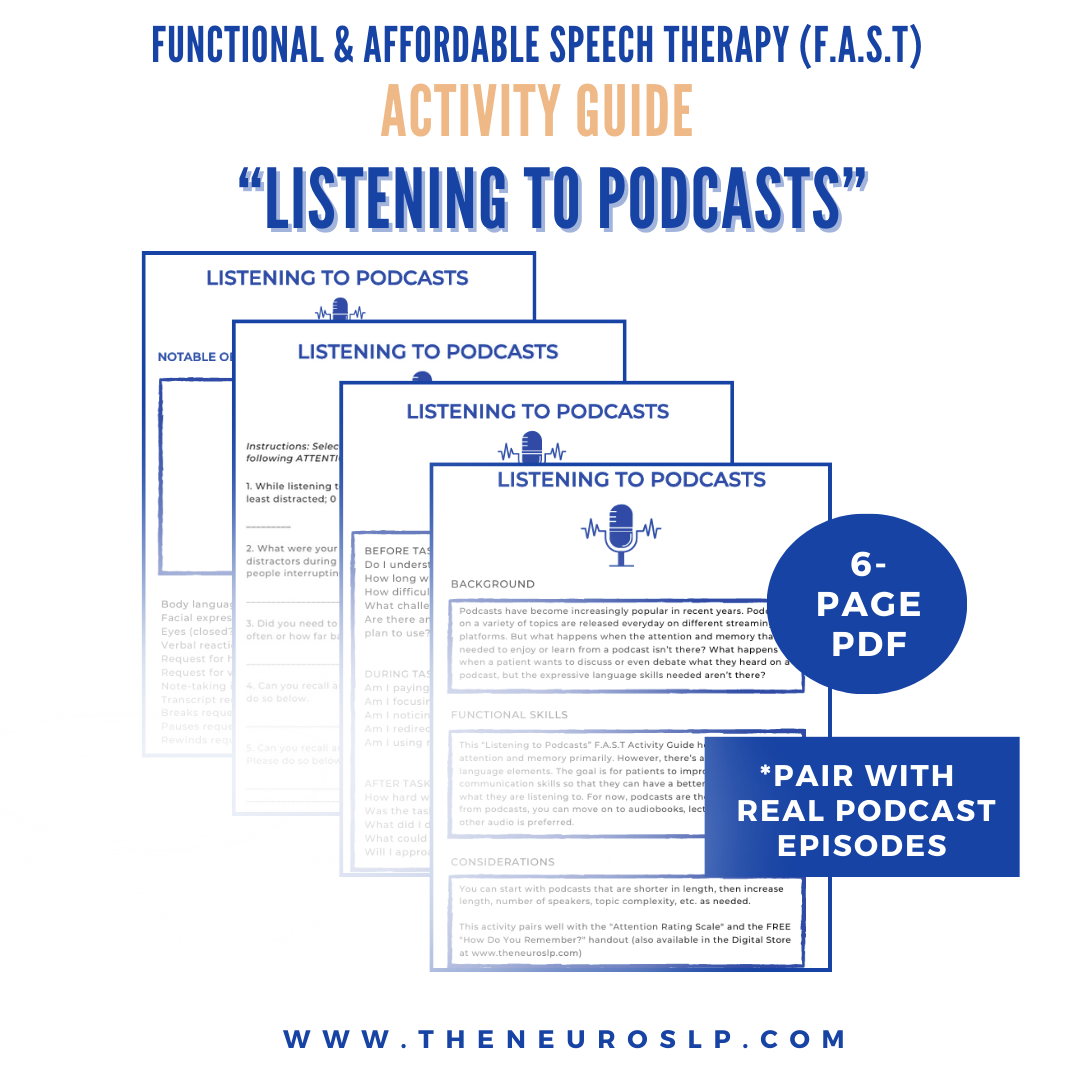
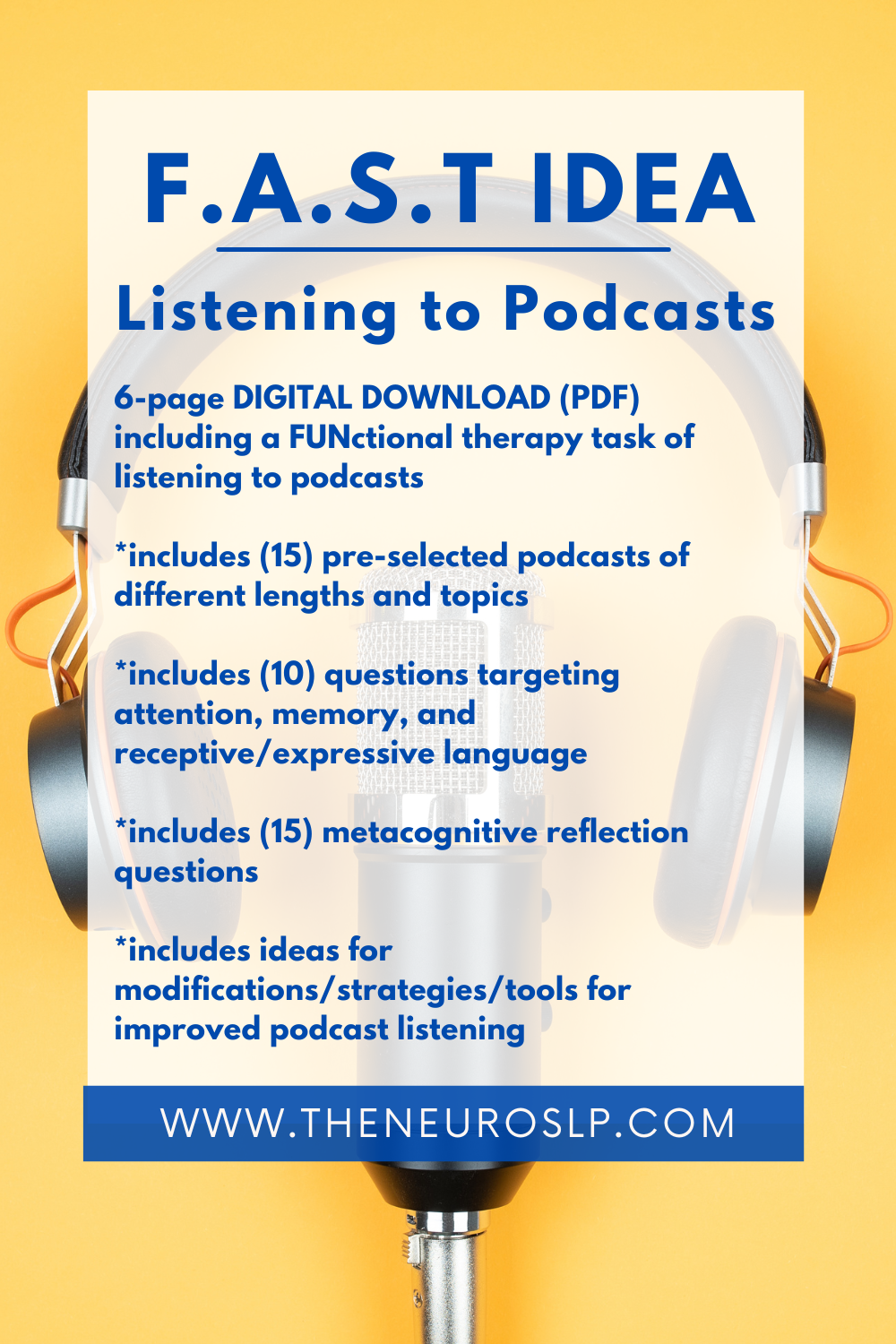


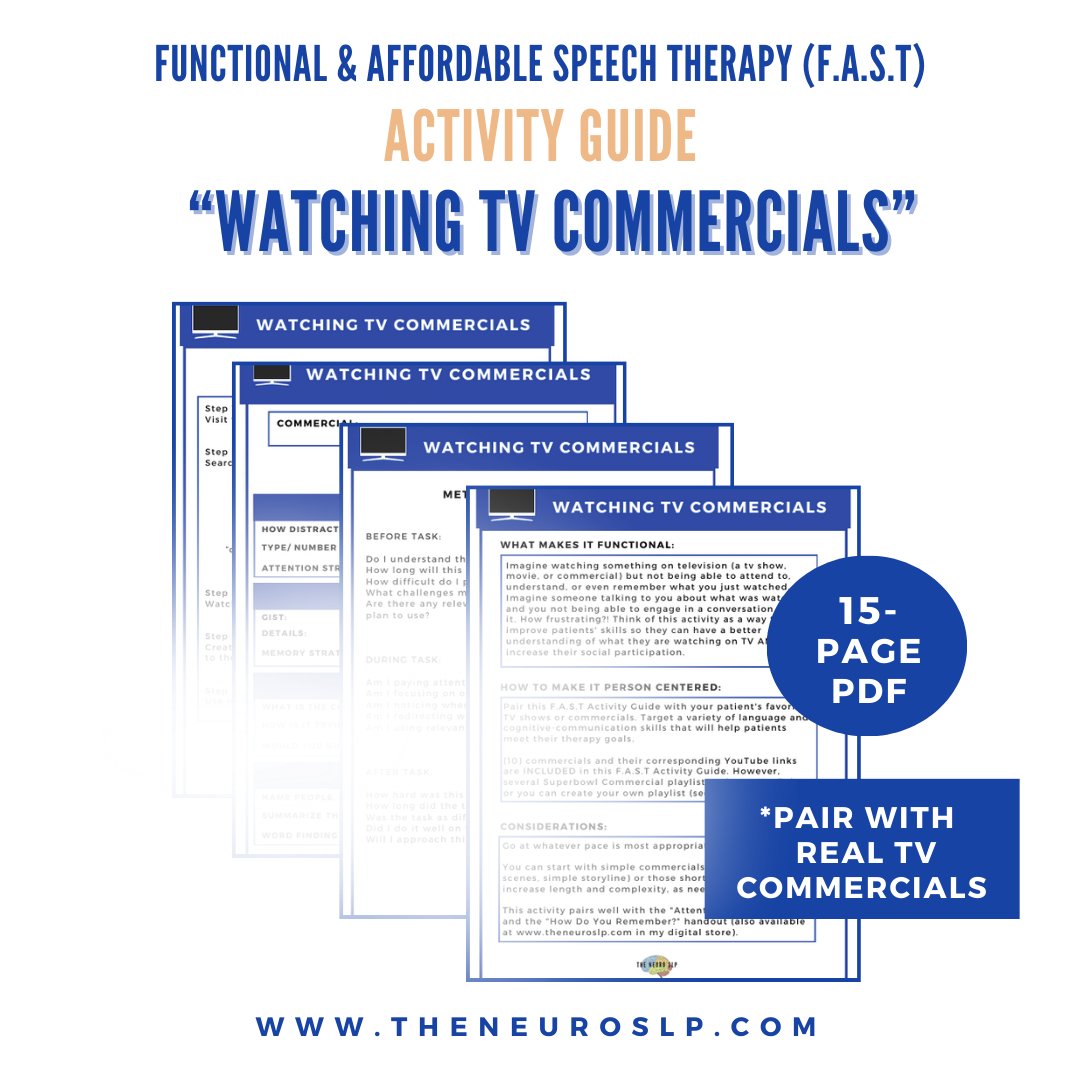
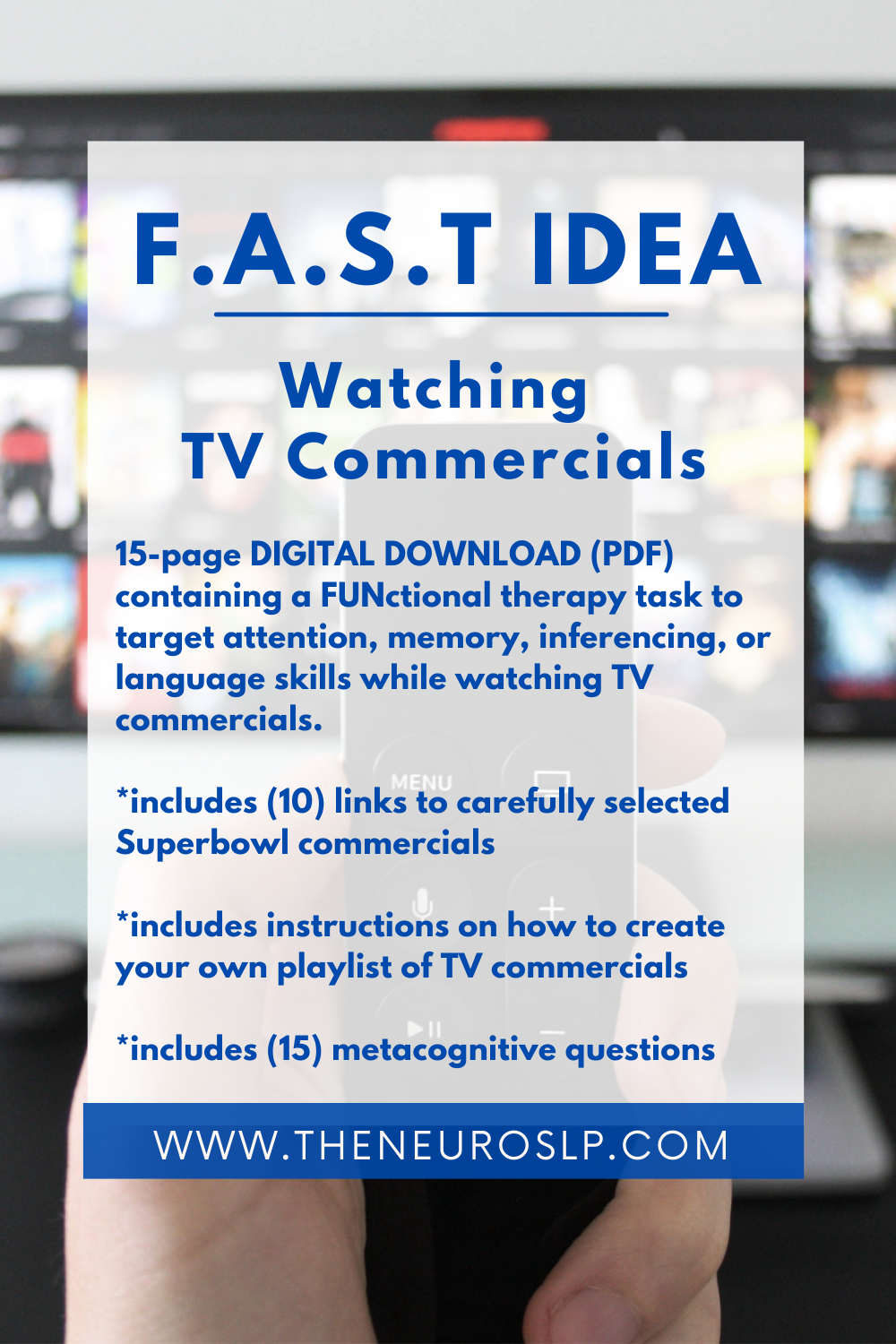


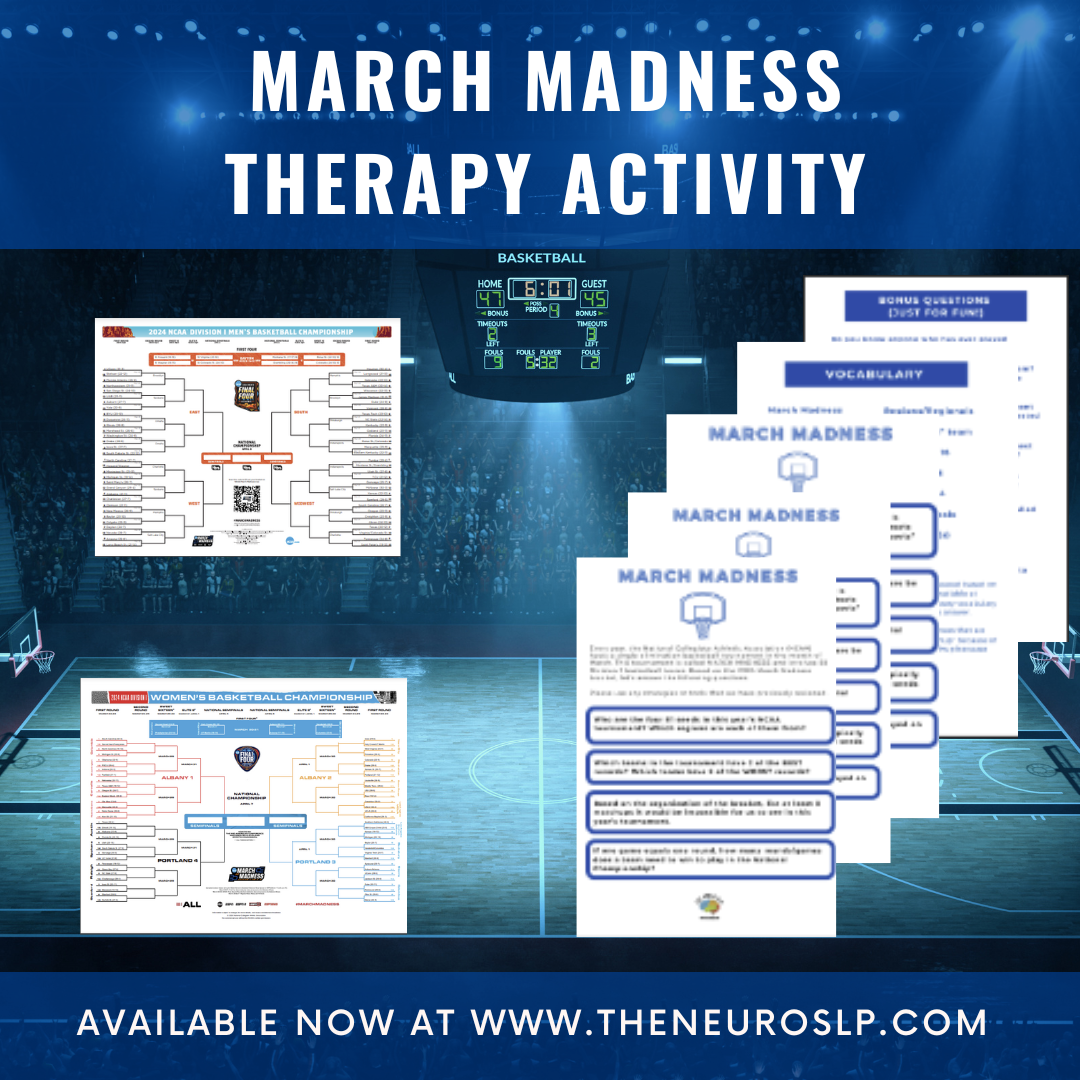
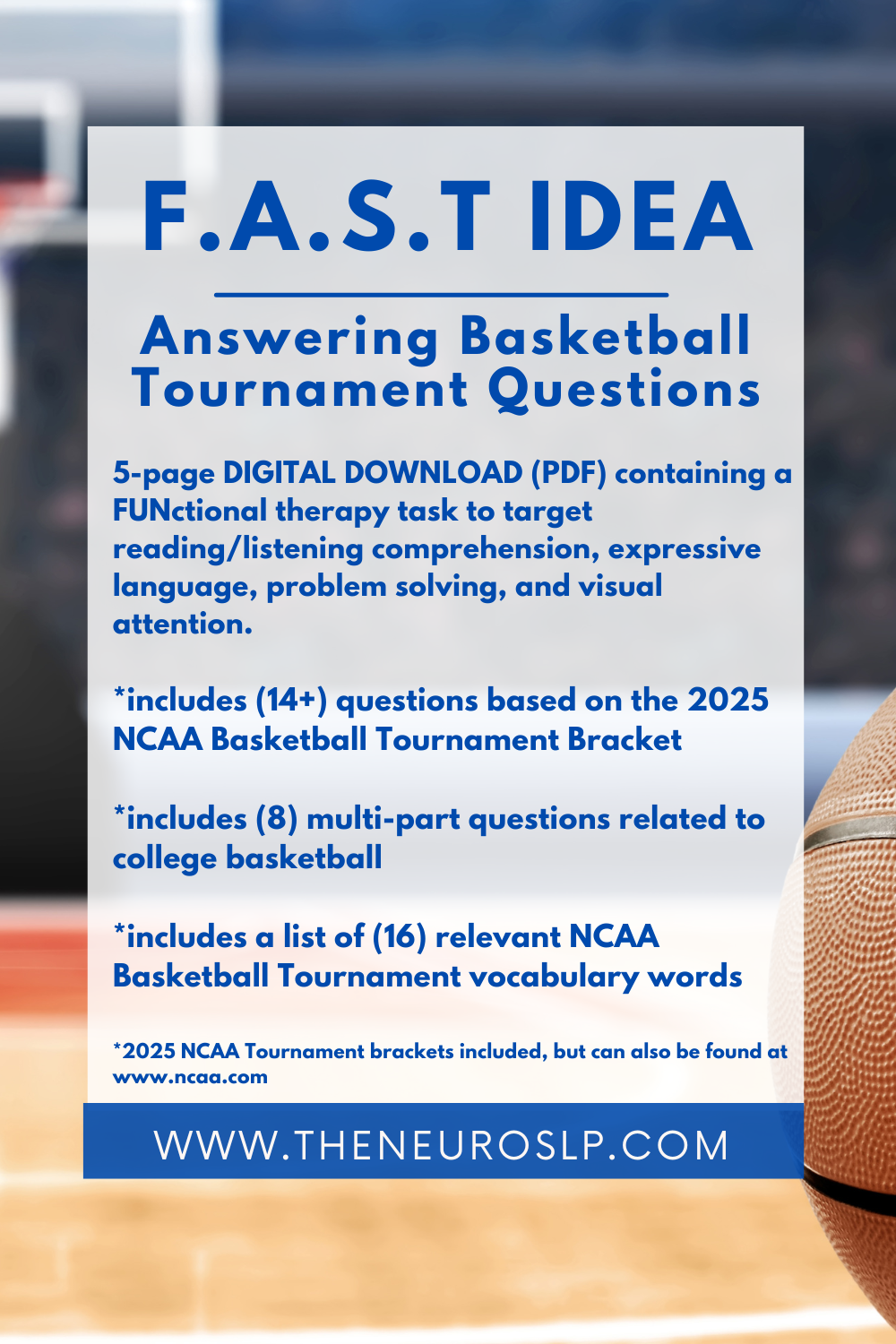


Comments ()